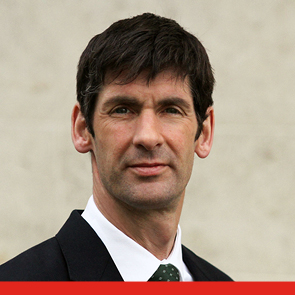Pension panellists reveal 8 key insights

Ahead of ICAS’ Challenging Conversations event on pensions in London, four of our panellists shared their thoughts on some of the hot topics.
 Sir Brian, the Government’s waning support for the pensions dashboard and the delay to pensions cold calling ban seems like a retrograde step in providing better pensions outcomes for people. How must policy making change to avoid this?
Sir Brian, the Government’s waning support for the pensions dashboard and the delay to pensions cold calling ban seems like a retrograde step in providing better pensions outcomes for people. How must policy making change to avoid this?
We need to reconsider pot-follows-member proposals – new digital technology may make it more efficient to track pension pots with consolidated reporting to members.
Auto enrolment is hailed as a policy success story – what are your thoughts?
It’s too early to tell, as pensions is a very long game.
On the plus side it means more members; on the negative side, contributions for most members are much lower than under the previous DB regimes.
There are also poverty threshold traps for people on lower earnings.
What more should employers be doing to help employees saving into defined contributions arrangements save enough for a decent retirement?
Two important steps for members will be to squeeze out excess manager fees, and to start saving early and at affordable and steady contribution rates with supporting employer savings.
 Tom, in your experience, is freedom and choice delivering for savers?
Tom, in your experience, is freedom and choice delivering for savers?
Freedom and choice was clever politics, it was radical and hasty to the point of recklessness and so far it has proved enormously popular with investors, who in the main have used the freedoms sensibly.
However, we have enjoyed a 10-year bull market; if the investment tide recedes, particularly if we see a rapid fall in stock markets, then we’ll get to find out just how well these reforms have really served investors.
The FCA is still working to implement policies which will protect investors. In the meantime everyone’s happy: investors, the pensions industry and the Treasury….
Gregg, as a former MP, do you think it’s possible for politicians to bridge the party divide and reach a long-term consensus on pensions?
 This was achieved during the Tony Blair years via the Turner Pensions Commission which built cross-party support for auto enrolment. So, it’s not impossible. But it takes political vision and courage. An OBR-style pensions policy analysis body would be a first step.
This was achieved during the Tony Blair years via the Turner Pensions Commission which built cross-party support for auto enrolment. So, it’s not impossible. But it takes political vision and courage. An OBR-style pensions policy analysis body would be a first step.
Are collective defined contribution pensions just a good idea in theory or could they work in practice?
Many of the benefits which CDC potentially offers are achieved in accumulation by not-for-profit master trusts with scale. This is the lesson from Australia. The outstanding question is about retirement income streams and how to deliver them to members efficiently. Again not-for-profit master trusts can deliver these benefits if the regulatory environment is right.
 Chris, what could Government do to help people prepare for a 100-year life?
Chris, what could Government do to help people prepare for a 100-year life?
The hardest part will be getting people to be aware of the possibility of the 100-year life – younger people still tend to underestimate how long they are likely to live for.
But creating some flexibility in saving alongside or on top of the existing strong default of automatic enrolment could help people manage better financially, while more access to employment training and skill development at all ages might also enable people to cope with the challenges, and so appreciate the benefits, of living longer.
In recent years significant pension reforms have been implemented. When and how will the public know if these policies have met their stated objectives?
Most of the recent reforms will take many years to bed in. For example, with automatic enrolment, it is only those who are now joining the workforce who will get the full benefit of pension contributions throughout their working life.
It is also very unlikely that the policies will not be changed before reaching their full long-term effectiveness. So, it is very difficult for the public to know if they have worked – in particular if the stated objectives are not very clear.
Perhaps a very clear articulation of what a good retirement outcome looks like would help the public to judge how well things were going nationally, and plan for their own later life in due course.
